by Tasmiah Akter
For most people, the idea of a rainforest may elicit a scene something along these lines: mud-caked shoes, towering trees, sprawling greenery, multicolored flowers, humid air, poisonous tree frogs, etc. When students Tamira Le ‘26, Josie Dickman ‘26, Cecilia (Sissi) Briana Foldessy-Stiegemeier ‘26, Julia Augustyn ‘25, and Emma Knapp ‘25 went to the Iracambí Rainforest Research and Conservation Center in Minas Gerais, Brazil this summer, they discovered that the rainforest is a place that offers these things and so much more.
When students from the United States and our own Wesleyan study abroad, diversity is lacking in two areas: the population that goes to study abroad and the countries they choose to go to. According to Opendoorsdata.org, 68% of Americans who studied abroad in 2021 identified as white and 32% of Americans who studied abroad in 2021 identified as being in an underrepresented racial group (silver lining: this is a 10% jump from 2011 when only 22% of Americans in underrepresented racial groups studied abroad). In 2021, 66% of Americans studied abroad in Europe, followed by 12.3% in Asia, 11% in Latin America & the Caribbean, and 2.4% in Africa (which does not include North Africa). “Here at the Fries Center for Global Studies (FCGS), the goal is to make study abroad accessible to everyone on campus and to remove barriers for students to study at less common places,” says Anita Deeg-Carlin, the Director for Intercultural Learning at the FCGS. Iracambí, a remote rainforest location in Brazil, is a new destination as of last summer for Wesleyan students and the organization’s mission is an important one – they aim to restore the Atlantic Rainforest through reforestation by collaborating with the local community. According to Ms. Deeg-Carlin, who hopes another cohort of Wesleyan students might experience Iracambí next summer, a student “…can be interested in just about anything and find a way to make a difference at Iracambí.”; the experiences of the students who visited the research center this summer corroborate this statement.
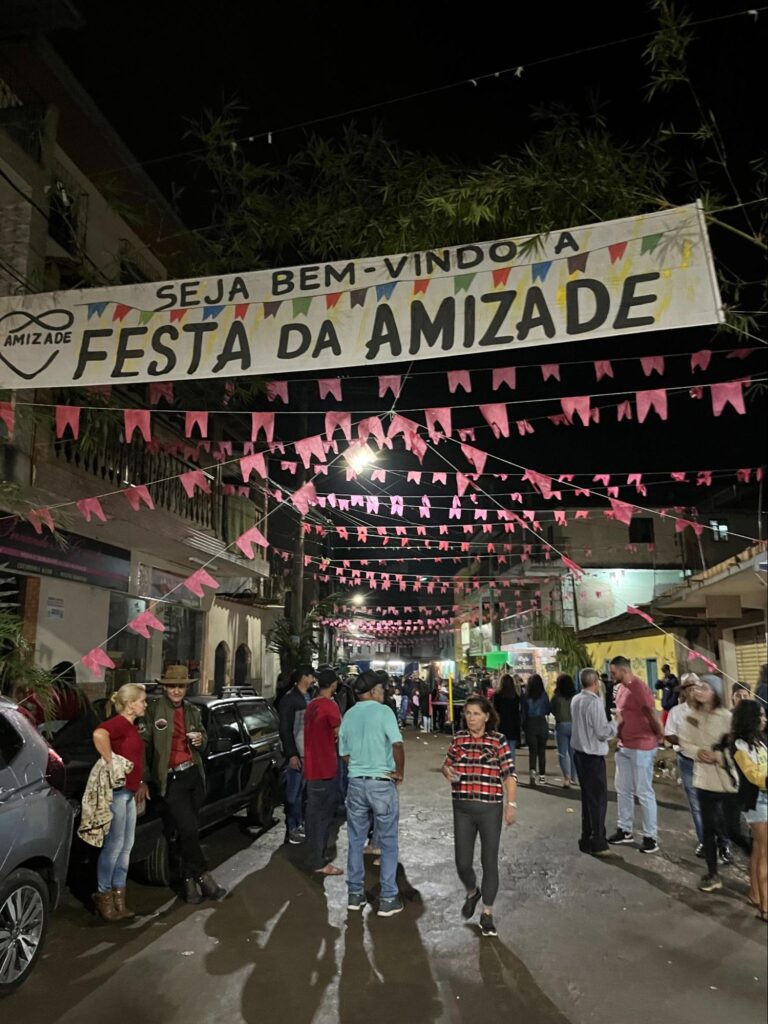
Tamira Le’s trip to Iracambí was fueled by her dedication to sustainability and forest conservation. Prior to this visit, she did not have experience in forest conservation work and said this was a great way to gain knowledge in this field and network with other individuals who are passionate about these topics. Though there was no schedule set in stone, her daily activities included administrative work, marketing, fundraising, making trips to the local school to teach English to the students there (for many of whom it was their first time interacting with native English speakers/foreigners, which they were very excited about), attending team meetings, and checking camera recordings to monitor the biodiversity in the area. When I asked Tamira about the coolest thing she saw on the recordings, she immediately exclaimed “Ocelot!” She also deeply enjoyed getting to witness the process that the Iracambí researchers use to identify trees. According to Iracambí’s volunteer coordinator, Tamira immensely helped improve the administrative structure of the organization and was invaluable to the organization for her contributions. Besides these work-related activities, Tamira also spoke fondly of moments after dinner where everyone at the center would gather around a bonfire, play board games, or just chat. On weekends, she would make a trip into the town with other volunteers. She said she “Might go to weekly festivals in the town where there was Brazilian country music, people in their cowboy hats, food & drinks!” This was a great way to get to know the local townspeople and the culture. She urges readers to not waste time and explore as much as they can. When I asked Tamira to summarize her experience with an anecdote/quote/anything, she quoted the founder of the center: “If you put crazy people together in the forest, magic will happen.”
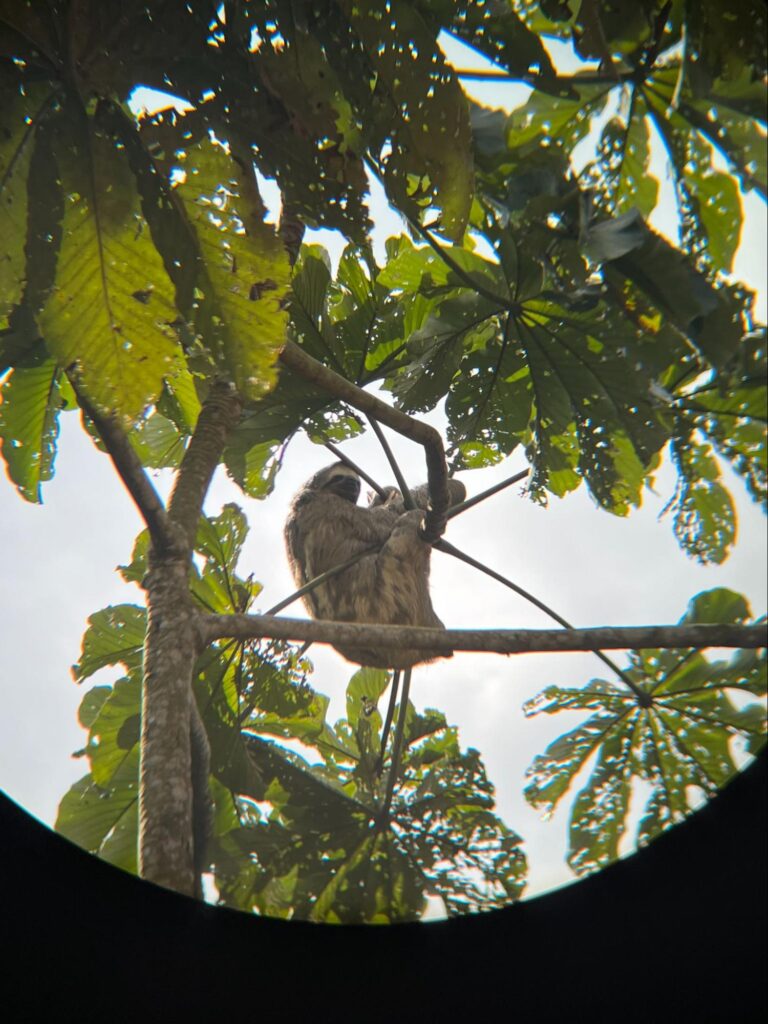
Josie Dickman had an equally amazing experience at Iracambí. Josie says she heard the word “rainforest” and got excited because she loves being in nature. Upon doing more research into Iracambí’s mission and goals, Josie says she “Really liked the work that they are doing and wanted to see it on the ground.” At Iracambí, Josie took part in similar activities to Tamira but one of the ways she left her mark at the center was by restoring some benches that now serve as a very important common space for the people at the center. She said for some time, her schedule revolved around this project as she “Woke up, got breakfast, got tools from the tool shed, got paint, mixed the paints, and worked on the benches.” According to the volunteer coordinator, now people can use this space for meals, teaching, etc.
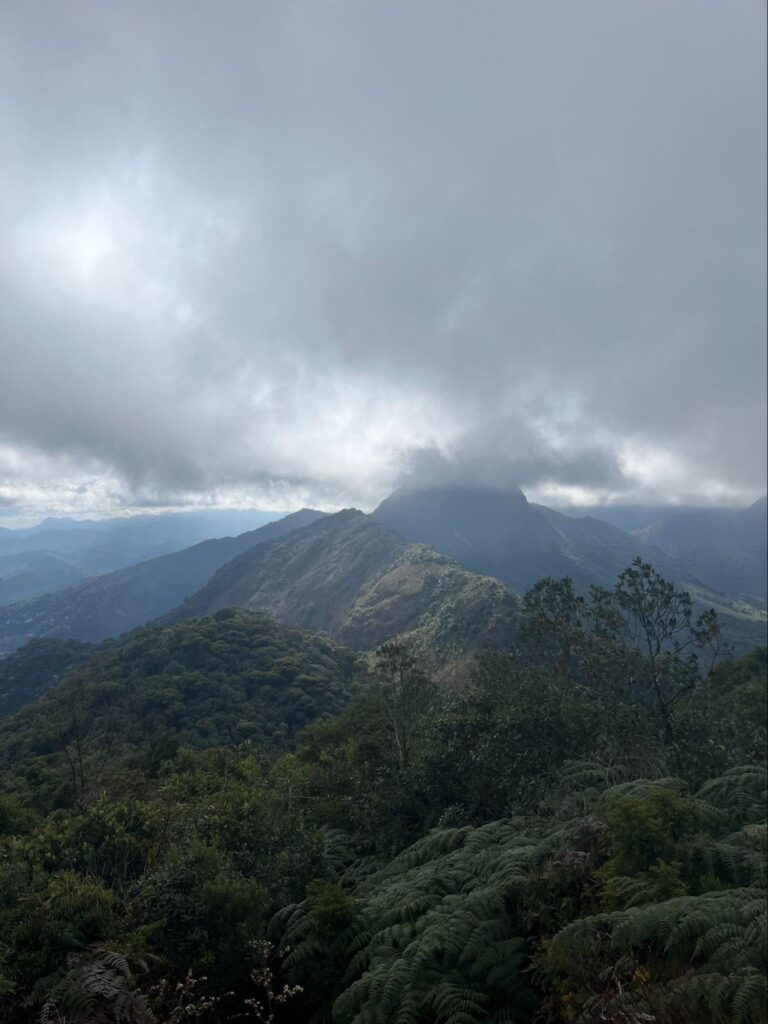
Josie’s commitment and love for Iracambí as a gathering space for people of all walks of life who were working toward one goal is clear in the way she speaks about the times everyone at the center came together to wind down. She says that she “…felt held and supported by this community. There was a communal feeling present and there was a cultural moment of existing in the present moment and embracing the little moments in life, the slowness of life, looking up at the stars in a place with no light pollution.” This cultural moment Josie speaks of is something that underscored her entire experience and something she says readers should embrace and approach with an open mind. Josie says that Iracambí can mean everything for you if you let it and to “Be ready to have a worldview shift.”
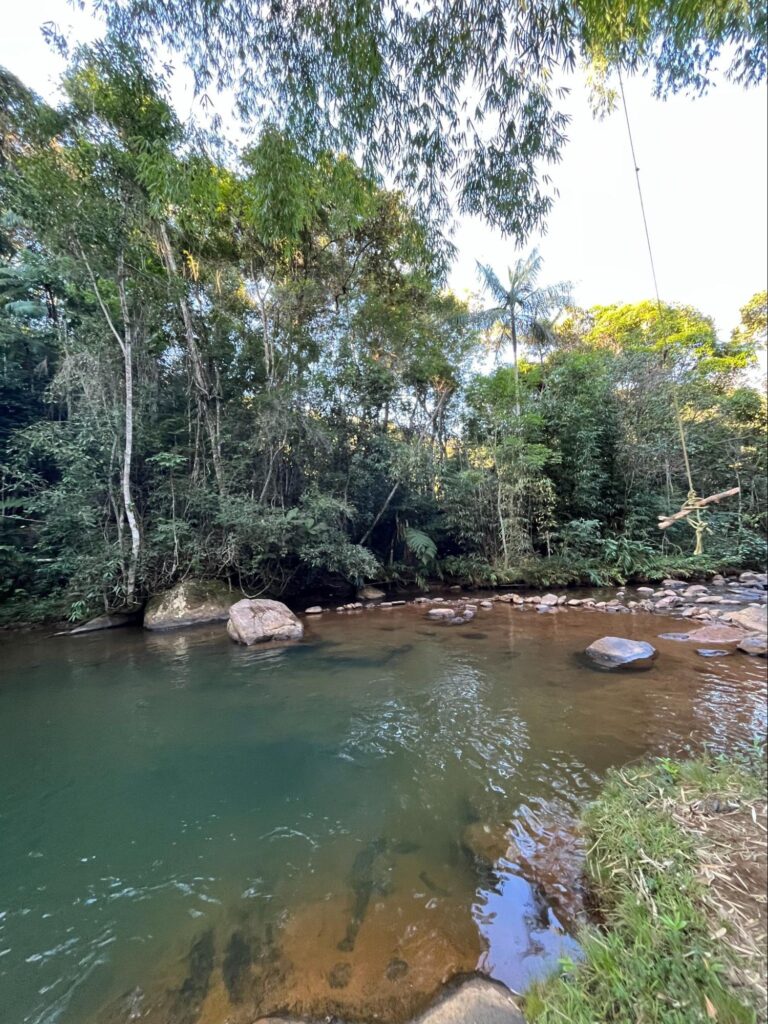
Iracambí also welcomed Cecilia (Sissi) Briana Foldessy-Stiegemeier ‘26, Julia Augustyn ‘25, and Emma Knapp ‘25 this summer. Sissi worked with the Young Eco-Leaders Program to help educate local school children about sustainability, biodiversity, and forest conservation so that the children can develop a connection to the forest and become advocates for it. In addition to this, she practiced English with the kids through activities that she helped design and even helped formalize the English program. The kids also loved Sissi’s ukulele skills, which bridged some language and cultural gaps. Emma and Julia were involved with the more scientific side of things. They worked on the tree nursery, seed/seedling collection, filling bags with substrate, and learned how to run the Native Tree Reforestation project. They also improved an interactive map with tree and seed mapping (which lets you know which tree is seeding and when), made two tables of five-hundred bags of dirt, and got seedlings from the wild to put in those bags. When the seedlings are ready, people at Iracambí will plant them in the forest. Eduardo, the center’s volunteer coordinator, expressed a deep appreciation for the work all the Wesleyan students did.
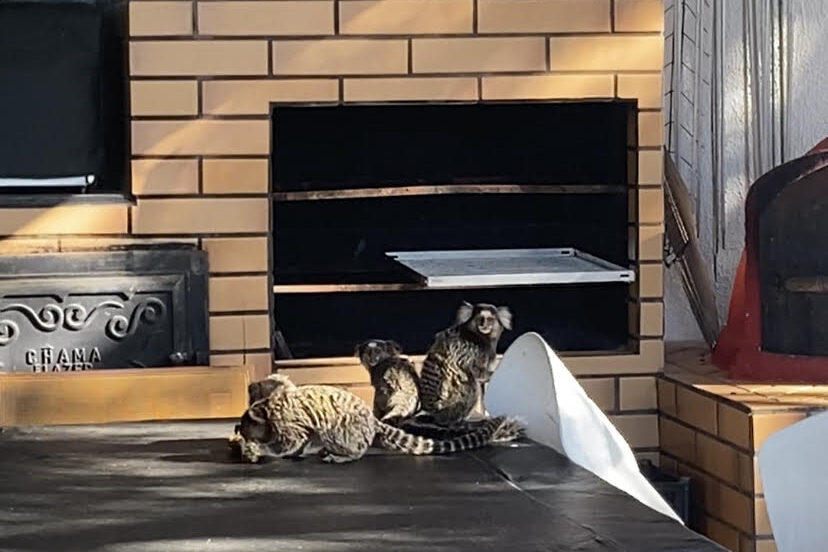
If Tamira, Josie, Sissi, Julia, and Emma’s experiences compel you to want to learn more about this wonderful place and study in Brazil, Portuguese professor Dr. Elizabeth Jackson is a great person to speak with. She says that, “Anyone interested in Brazil will have a unique experience there versus other parts of Latin America due to it being a complex country….rich [with its own] literature, music, architecture, and art.” and that “Learning the Portuguese language opens the door to the regions, culture, history and peoples on five continents.” Because some of the girls who visited this summer did not have any Portuguese experience, they admit that they faced some minor challenges, such as during travel or when trying to have meaningful conversations with non-English speaking staff.
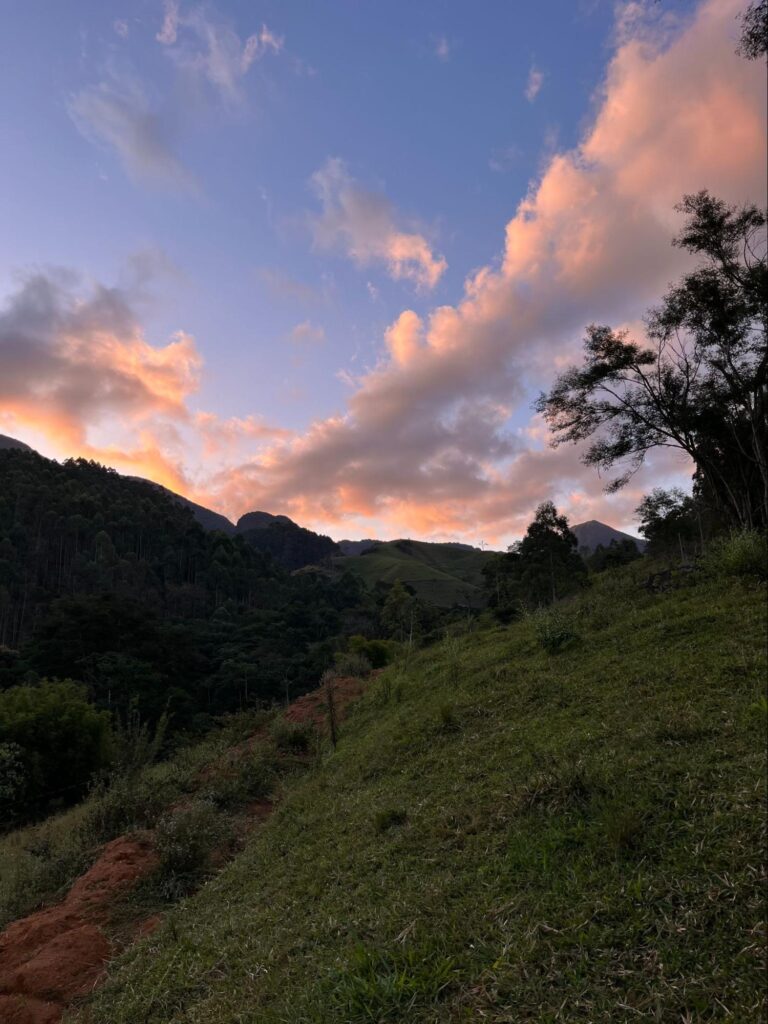
Dr. Jackson plans to offer Intro to Portuguese to Wesleyan students in the spring and urges anyone planning to travel to Iracambí to take her class! For the Wesleyan students who went to Iracambí, this was an experience that they will never forget. The FCGS wants more people to have transformative experiences abroad like this. If after reading this article, you find yourself wanting to be in the middle of the forest with other crazy people, don’t hesitate to reach out to Josie, Dr. Jackson, or Ms. Deeg-Carlin. Don’t let anything get in your way, whether it be questions about funding, your Portuguese abilities, or even just the idea of living in a forest for the first time – at the FCGS, people are here to help and guide you with all of these things! Stay tuned for an information session in the spring.


